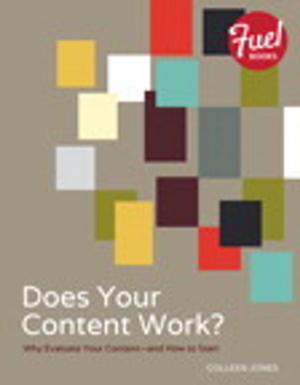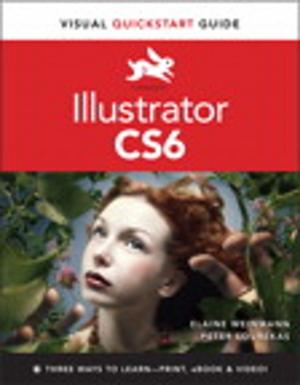CSS Animations and Transitions for the Modern Web
Nonfiction, Computers, Internet, Web Development, Web Site Design| Author: | Steven Bradley | ISBN: | 9780133980547 |
| Publisher: | Pearson Education | Publication: | November 10, 2014 |
| Imprint: | Adobe Press | Language: | English |
| Author: | Steven Bradley |
| ISBN: | 9780133980547 |
| Publisher: | Pearson Education |
| Publication: | November 10, 2014 |
| Imprint: | Adobe Press |
| Language: | English |
Modern websites use a variety of animated effects not only to improve usability but also to delight and surprise users. Some of these effects require complex scripting or programming skills, but many are within the grasp of designers who are already familiar with CSS and HTML. CSS Animations and Transitions for the Modern Web shows designers how to add movement to web pages over time using CSS3 style definitions.
Author Steven Bradley begins as simply as possible and uses elementary skills as the basis for more advanced techniques. Conceptual explanation is combined with specific examples to give designers a solid foundation in
the art of creating dynamic and appealing websites. Steven’s examples are posted at peachpit.com so readers can see the animations in action and download the code files for further study. Instructions for access are in the “Getting Started” section.
With CSS Animations and Transitions for the Modern Web, you’ll learn how to make your websites more vibrant and compelling with user interfaces that are functional, reliable, and usable, as well as beautiful.
Author Steven Bradley begins as simply as possible and uses elementary skills as the basis for more advanced techniques. Conceptual explanation is combined with specific examples to give designers a solid foundation in
the art of creating dynamic and appealing websites. Steven’s examples are posted at peachpit.com so readers can see the animations in action and download the code files for further study. Instructions for access are in the “Getting Started” section.
With CSS Animations and Transitions for the Modern Web, you’ll learn how to make your websites more vibrant and compelling with user interfaces that are functional, reliable, and usable, as well as beautiful.
- Up-to-date information on current browser support for CSS animations and transitions
- An introduction to manipulating web page objects in both 2D and 3D space
- Techniques for creating smooth transitions between object states
- An overview of Disney’s principles for creating realistic animation and how they apply to web page designs
Modern websites use a variety of animated effects not only to improve usability but also to delight and surprise users. Some of these effects require complex scripting or programming skills, but many are within the grasp of designers who are already familiar with CSS and HTML. CSS Animations and Transitions for the Modern Web shows designers how to add movement to web pages over time using CSS3 style definitions.
Author Steven Bradley begins as simply as possible and uses elementary skills as the basis for more advanced techniques. Conceptual explanation is combined with specific examples to give designers a solid foundation in
the art of creating dynamic and appealing websites. Steven’s examples are posted at peachpit.com so readers can see the animations in action and download the code files for further study. Instructions for access are in the “Getting Started” section.
With CSS Animations and Transitions for the Modern Web, you’ll learn how to make your websites more vibrant and compelling with user interfaces that are functional, reliable, and usable, as well as beautiful.
Author Steven Bradley begins as simply as possible and uses elementary skills as the basis for more advanced techniques. Conceptual explanation is combined with specific examples to give designers a solid foundation in
the art of creating dynamic and appealing websites. Steven’s examples are posted at peachpit.com so readers can see the animations in action and download the code files for further study. Instructions for access are in the “Getting Started” section.
With CSS Animations and Transitions for the Modern Web, you’ll learn how to make your websites more vibrant and compelling with user interfaces that are functional, reliable, and usable, as well as beautiful.
- Up-to-date information on current browser support for CSS animations and transitions
- An introduction to manipulating web page objects in both 2D and 3D space
- Techniques for creating smooth transitions between object states
- An overview of Disney’s principles for creating realistic animation and how they apply to web page designs















